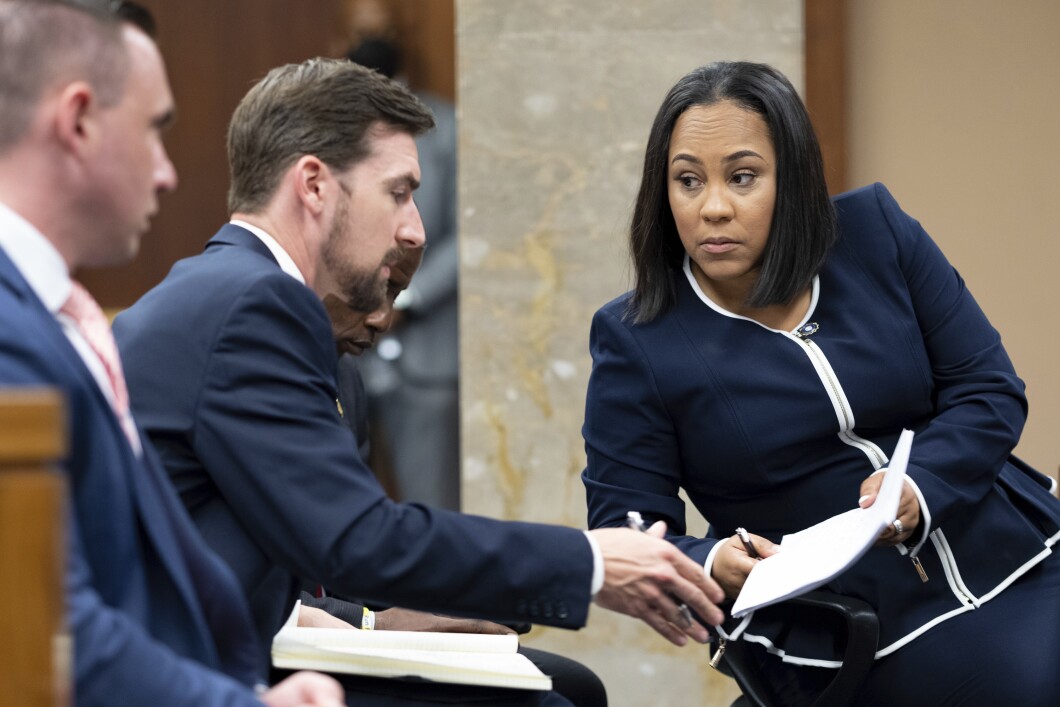
A Georgia judge disqualified Fulton County District Attorney Fani Willis Monday from overseeing a key aspect of her inquiry into whether crimes transpired during the 2020 election.
Willis is disqualified from subpoenaing or criminally investigating state Sen. Burt Jones, the Republican nominee for lieutenant governor, because of a fundraiser she attended last month for a potential rival of Jones. The state senator had been a focus of her inquiry.
JUDGE REBUKES GEORGIA PROSECUTOR INVESTIGATING TRUMP
“An investigation of this significance, garnering the public attention it necessarily does and touching so many political nerves in our society, cannot be burdened by legitimate doubts about the District Attorney’s motives,” Fulton County Superior Court Judge Robert McBurney wrote, siding with Jones’s motion to disqualify her.
Willis had participated in a fundraiser for Democratic lieutenant governor hopeful Charlie Bailey, who was mired in a runoff for the Democratic nod for lieutenant governor, a race he ultimately won. Roughly $32,000 had been raised for Bailey’s campaign at the fundraiser, according to Jones’s lawyers.
“The District Attorney does not have to be apolitical, but her investigations do. The Bailey fundraiser she sponsored — in her official capacity — makes that impossible when it comes to investigating Bailey’s direct political opponent,” McBurney added. “Any decision the District Attorney makes about Senator Jones in connection with the grand jury investigation is necessarily infected by it.”
As a result of the disqualification, Willis and her office are barred from subpoenaing Jones or declaring him a criminal target of the inquiry. However, Willis and her team of investigators are permitted to gather evidence about Jones and question witnesses about his conduct. While the Fulton County District Attorney’s Office cannot build a case against him, another prosecutor’s office could do so.

Jones had recently been informed he is a criminal target of Willis’s investigation and argued the district attorney’s support of Bailey presented a conflict of interest. Willis’s attorneys argued that she had backed Bailey in a runoff at a time when it was unclear who would clinch the Democratic nod. They also underscored that she had not treated Jones differently than other subjects of the inquiry.
In December 2020, Jones partook in a meeting where 16 Georgia Republicans were selected as alternative electors who could be called upon to supersede the official electors if challenges to the 2020 election prevailed. Jones had won the Republican nomination for lieutenant governor in May.
A special grand jury impaneled in May to issue subpoenas and assist with the inquiry subpoenaed those alternate electors. Eleven of the 16 alternate electors sought to disqualify Willis from investigating them on the basis of their Fifth Amendment privileges against self-incrimination. McBurney shot down that request Monday.
“It is not unreasonable to seek their testimony and it is not oppressive to require an appearance by way of subpoena. Nothing about that process deprives the electors of their Fifth Amendment privilege,” he ruled. “Their subpoenas will not be quashed.”
CLICK HERE TO READ MORE FROM THE WASHINGTON EXAMINER
Willis has been examining whether crimes were committed in the 2020 election — an inquiry that began last year after a call former President Donald Trump made to Georgia Secretary of State Brad Raffensperger asking him to “find” the votes needed to tip the Georgia election to him. Trump has defended the call as “perfect” and denied wrongdoing.
Investigators for Willis have scored testimony from a number of high-profile witnesses such as Raffensperger and are expected to receive some form of testimony from Gov. Brian Kemp, Sen. Lindsey Graham (R-SC), and others.






